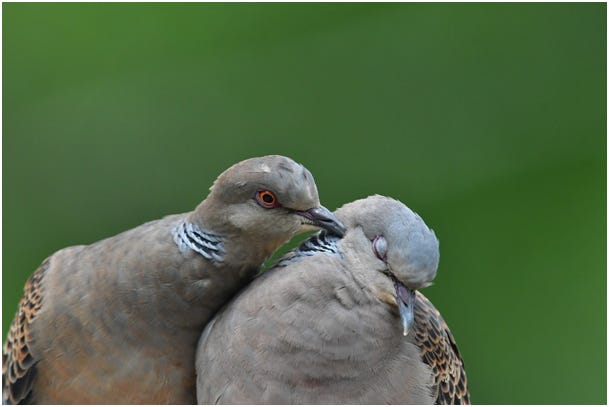Prague’s Celebration of Love on May Day
How Bohemians honor the their "national" poet, Karel Hynek Mácha
February: daffodils and singing tits.
March: tulips and fluting blackbirds.
April: pink cherry blossoms, chattering chaffinches and soaring skylarks.
May: more blooming cherry trees, daisies, and if you’re lucky, a warbling turtledove.
Springtime in Europe
Springtime in central Europe follows a pattern so predictable that many aspects are steeped in folklore. The daffodil’s other name, narcissus, recalls the young man of Greek mythology who fell in love with his own image. The goddess Nemesis wanted to let him starve to death, but the other gods saved him by turning him into a flower. According to Druid legends, a Blackbird’s song can put listeners into a trance, in which they can travel to other worlds and learn mystic secrets. Both Christian poetry and Celtic legend celebrate the skylark as a superlative musician. Its scientific name, alauda, comes either from the Latin a laud (with praise) or the Celtic al aud (great song).
But for young hearts in love, no other bird surpasses the turtledove.
The turtledove and love
Streptopelia turtur has long been a symbol of love, probably because it has such strong pair bonds. Turtledoves mate for life, at least according to popular folklore, and ornithological research backs that up to some extent: They have a monogamous mating system and their pair bonds sometimes extend beyond a single breeding season.
Three thousand years ago in the Song of Songs, the soaring love poem of Hebrew literature, King Solomon associated the cooing of turtledoves with the time of singing. Roman mythology has turtledoves pulling the chariot of Aphrodite, the goddess of love. In his Parliament of Fowls, Chaucer speaks of the “the wedded turtel, with hir herte trew” (the wedded turtledove with her heart true). And Shakespeare depicts the turtledove as the devoted partner of the phoenix, faithful beyond death, in The Phoenix and the Turtle:
Death is now the phoenix’ nest, And the turtle’s loyal breast To eternity doth rest

The turtledove in Mácha’s Máj
But no other poem in European literature so beautifully associates the turtledove with love as Karel Hynek Mácha’s Czech poem, Máj (May), which begins:

Byl pozdní večer – první máj – Večerní máj – byl lásky čas. Hrdliččin zval ku lásce hlas, Kde borový zaváněl háj.
It was late evening – the first of May A late May evening – it was the time of love. The turtledove’s voice called to his beau, Where the pine grove’s fragrance wafted.
And at the end of several cantos, the turtledove agonizingly cries out the names of the poem’s lovers, whose relationship has now been doomed by death, and the name of the narrator, a traveler who discovered their sad tale years later:
Hynku! Viléme!! Jarmilo!!!

Czechs regard Máj as the pearl of Bohemian poetry and Mácha as their greatest Romantic poet. This poem is to Bohemia what the Song of Solomon is to Israel or Romeo and Juliet to England. Its depth and scope are operatic – Mácha interweaves themes of nature, love, murder and betrayal; ghosts and a skull, the moon and the night all appear personified on his lyrical stage. Máj is required reading in Czech schools – every Czech knows the poem.
Sadly, Mácha died at the age of 25, only seven months after his masterpiece was published in April 1836, and only one day before his wedding was scheduled in Prague. Three days before he was to be married, he had helped put out a house fire and overexerted himself, although the exact cause of death is unclear. The death certificate listed it as cholera, but pneumonia has also been suggested and smoke inhalation may have also played a role.
The beauty and subject matter of the poem, combined with the tragic circumstances of Mácha’s life, have combined to make May 1 a Bohemian celebration of love. It’s a national holiday – the European Labor Day – in the Czech Republic. Couples traditionally walk to Prague’s Petřín Park to lay flowers at the Karel Hynek Mácha memorial and to plight their love under the blooming fruit trees.
Last year I visited Mácha’s memorial in May, and as I stood there in Petřín Park, I listened for turtledoves and whispered the poet’s name:
Karle, Karle, Karle!!!
Have you ever seen or heard a turtledove? Do you know Mácha’s poem?
Legal disclaimer: We disclaim all liability for the content of websites to which our site/newsletter provides links.






What a lovely post, Ann Marie! I love the Druid legends, too -- nice touch!